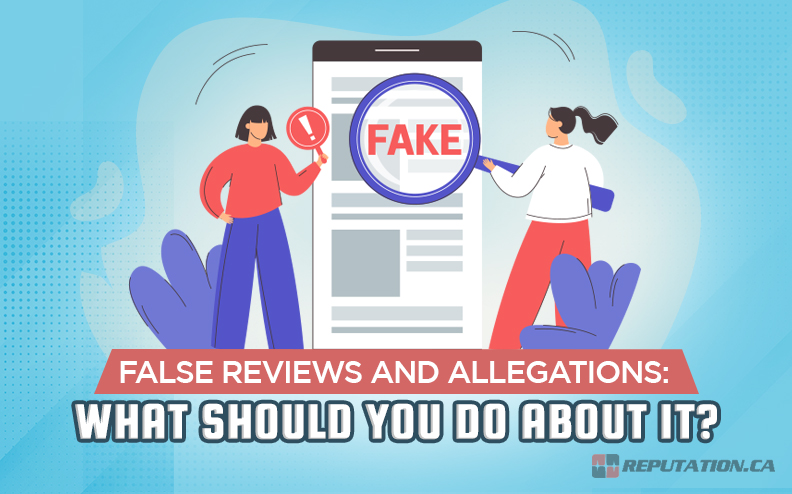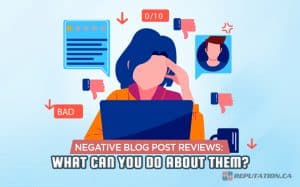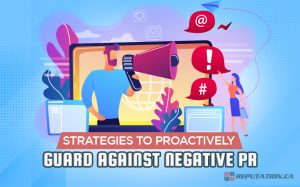Have you ever noticed an influx of negative online reviews for your business, only to suspect foul play? Imagine you’ve spent years perfecting your product or service, but suddenly, there’s a barrage of seemingly baseless negative feedback, making you question if a rival business is launching a deceptive smear campaign.
Sound familiar?
Online reviews can make or break a business’s reputation. They’re as influential as the endorsements of industry peers or the acclaim from trusted partners. We, as business owners, understand the blood, sweat, and tears that go into establishing and maintaining our brand’s credibility.
But what happens when this hard-earned reputation is under threat?
Facing a storm of suspicious negative reviews can be unnerving. It’s not just about countering false claims but also about ensuring that potential clients or partners can distinguish genuine feedback from malicious attempts. Businesses, more than ever, need to unite against these deceptive tactics.
Understanding the Prevalence and Impact of False Reviews
A survey from BrightLocal uncovered that more than half of customers accept they have seen at least one bogus review in the last 12 months.
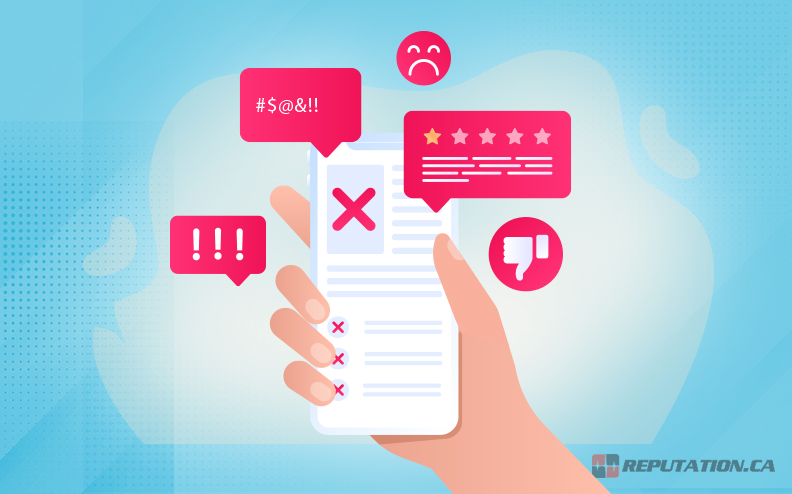
In fact, a study by BrightLocal found that 79% of consumers believe they’ve read at least one false review in the past year.
The Prevalence of Fake Reviews
When we talk about fake reviews, we’re not just referring to negative feedback aimed at tarnishing a business’s reputation. Positive fake reviews also play their part in distorting public perception and creating an unfair playing field for honest businesses.

This prevalence isn’t confined to obscure corners of the internet either. Major platforms like Google have been used as vehicles for these deceptive practices, causing genuine consumer advocacy efforts to be undermined.
The Impact on Businesses and Consumers
False reviews can seriously harm both businesses and consumers alike. For business owners, even a single bad review—especially if it’s unfounded—can lead to the loss of potential leads or customers due to its impact on online marketing strategies.
Research has shown that when faced with negative online comments (whether real or falsified), many prospective customers may choose another company offering similar services but having better ratings.
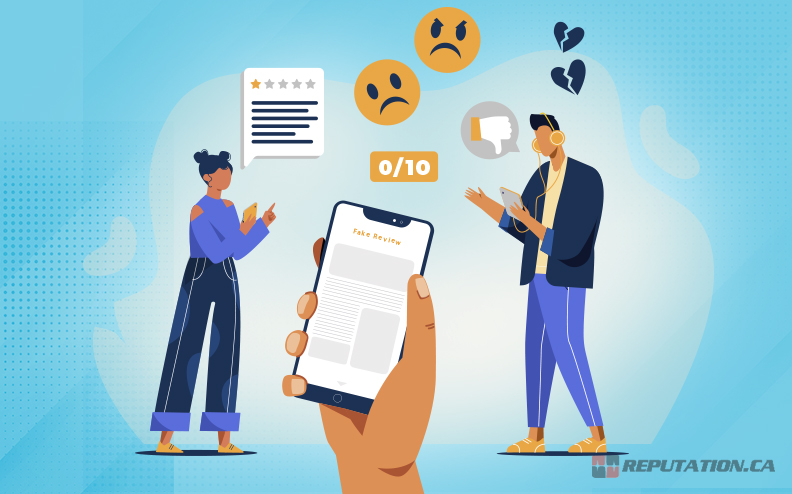
In contrast, positive phony evaluations mislead clients into purchasing products or services based on inflated praise rather than authentic customer experiences—a disservice indeed.
Addressing this issue is of utmost importance due to its widespread manifestation and subsequent implications. It necessitates tightening supervision for review submissions across all leading digital platforms, from social media sites to navigational tools like Google Maps. Moreover, it also merits consideration for legal action against those who deliberately post deceptive reviews to misguide the public. We must take all these precautionary measures to ensure accurate and fair information exchange.
Spotting False Reviews: Signs to Look Out For
Misleading or fabricated reviews can pose significant challenges for both businesses and consumers. However, effective strategies exist to discern them.
Discerning false reviews often involves identifying certain linguistic patterns. Studies indicate that deceptive feedback typically employs more simplistic language and includes more exclamation points compared to legitimate reviews. Moreover, they often encompass overstated claims about the product or service, evidenced in phrases such as “the best ever” or “worst encounter.” Such extreme expressions should invariably give cause for suspicion.
A key indicator of a potentially fraudulent review can be its lack of detail about the actual product or service. The absence of specifics might suggest that the reviewer has no real experience with the product or service.

Background checks on the reviewers themselves could also yield valuable insights. Illegitimate reviewers frequently use sham accounts, concocted names, and false identities solely for the purpose of posting misleading feedback. Therefore, profiles linked to suspicious reviews might lack substance – they may only show one (usually negative) review, no profile picture, or nonsensical usernames.
To circumvent this, one can examine the reviewers’ other engagements across various platforms, such as Google Maps, where they may engage in activities other than reviewing. A lack of additional engagement on the account, combined with questionable remarks, is a tell-tale sign of a counterfeit account. Thus, consumers should cautiously interpret online ratings before taking them at face value.
However, one needs to remember that these detection tactics are not ultimately infallible. With the rise of generative AI, deceptive individuals are becoming increasingly adept at crafting more convincing false reviews. Nevertheless, with this knowledge at your disposal, you are better prepared to identify misleading reviews and make well-informed choices in the online marketplace.
Legal Implications of False Reviews
Fake reviews not only present serious ethical concerns, but they also contravene existing legal statutes. This has led the Federal Trade Commission (FTC) to take active measures to protect consumers and legitimate businesses from the negative repercussions of dishonest appraisals.
The FTC has developed a proposed regulation explicitly designed to eliminate fraudulent reviews that mislead customers. Any violations, whether by creation or purchase of fraudulent testimonials, could result in severe civil penalties. So before any business owner contemplates boosting business ratings or hiring someone else to write false appraisals, they should consider the potential legal and financial fallout.
The proliferation of deceptive endorsements in today’s digitized marketplace has made the advent of these regulations inevitable. The introduction of stricter enforcement measures promises to level the playing field for all online businesses, ensuring a fairer competition without manipulation or deception.

The FTC’s proposed regulation is comprehensive, aiming not only to prevent the creation and acquisition of fake testimonials but also to rebuff any misrepresentation connected to such endorsements.
Once it has been officially recorded on the Federal Register, any company violating this law could face severe financial penalties. These fines are designated to act as a deterrent to thwart any businesses considering employing dishonest tactics.
Maintaining a robust and authentic online reputation, supported by genuine customer evaluations, is crucial for business growth. Authentic consumer feedback not only fosters trust among existing clients but can also persuade potential leads into becoming actual customers.
The FTC’s decision to enforce this regulation is a positive step. It provides reassurance for ethical business owners while serving a stern warning for those considering the manipulation of online reviews.
How Businesses Can Combat False Reviews
Fake reviews can present a considerable issue for any business owner. However, measures can be taken to protect your online reputation.
The initial action entails the detection and reporting of deceptive Google reviews. This may appear challenging, but rest assured that review platforms have established mechanisms that aid businesses in maintaining their credibility.
To initiate this, acquaint yourself with Google’s Review Workflow Page. This tool assists users in marking suspicious feedback. If supported by ample reports and substantiating evidence, these misleading comments could be subject to removal.
Your reliable patrons hold a crucial role as well. Prompt them to express their authentic experiences on various review sites. Over time, real positive evaluations can overshadow the bogus ones, enhancing overall customer confidence concurrently.

Here are a handful of positive things you can do while you wait for these fake reports to get taken down:
- Utilize Multiple Platforms: Don’t rely on just one platform for reviews. Encourage customers to leave feedback on various review sites to ensure a diverse range of genuine opinions.
- Encourage Genuine Feedback: Actively request satisfied customers to share their experiences. A larger volume of genuine reviews can easily drown out the fake ones.
- Engage with the Reviews: Whether it’s genuine praise, constructive criticism, or a false allegation, always engage. Responding to reviews, especially negative ones, shows transparency and commitment to addressing customer concerns.
- Implement a Review Monitoring System: Use technology to your advantage. There are tools available that notify businesses when they get reviewed, allowing for prompt responses.
- Educate Your Customers: Make your loyal customers aware of the issue of fake reviews. They can be your warriors in flagging suspicious reviews.
- Document Everything: Keep records of all interactions with customers. This provides evidence to back up any disputes against false claims.
- Use feedback Constructively: Instead of being defensive, use negative feedback (even if you suspect it’s false) to evaluate and, if necessary, improve your business processes.
- Transparency is Key: If you’re falsely accused of something, consider sharing behind-the-scenes details or proofs (without breaching privacy) that can refute the claims. This shouldn’t be about attacking the reviewer but clarifying the truth.
- Avoid Public Altercations: Never get into a public spat with reviewers. Even if you’re sure a review is false, always respond professionally and calmly.
- Consider Legal Action for Chronic False Reviews: While it should be a last resort, remember that deliberately harming a business’s reputation with fake reviews may be legally actionable. Consulting with a legal advisor when faced with chronic fake reviews could be beneficial.
Remember, you should avoid placing your complete trust in a solitary review platform. Opt instead to utilize a variety of platforms for a well-rounded perspective on products or services. Albeit more time-consuming, it offers a balanced view and safeguards against skewed judgments.
Business owners have the right to question and report suspicious activity on their review pages. It’s not just about protecting their reputation; it’s about making sure customers get truthful information so they can make informed decisions.
The Role of Technology in Detecting False Reviews
The pivotal role of technology in identifying and eradicating fraudulent online reviews cannot be understated. Essential tools in this significant task include robust fraud detection algorithms and the increasingly powerful generative artificial intelligence (AI).
When utilized in the detection of fraud, intricate algorithms meticulously study online user comments. These algorithms can identify patterns that hint at suspicious behavior. For instance, when one user continuously posts over-positive or overly critical comments or when multiple users submit exceptionally similar content at the same time, these activities are marked as possibly fraudulent. Furthermore, false reviews frequently involve the repetition of certain keywords or phrases.
However, advances in technology have also created new platforms for fraud. The increasing abilities of generative AI technologies are a good example of this. Although these tools demonstrate the leaps and bounds technology has made, they also pose a risk of being exploited for harmful purposes. These counterfeit reviews have the potential to mislead consumers and manipulate even the most sophisticated review platforms.

Yet, the intriguing part is that generative AI can also be employed as a guard against fraudulent reviews. Despite its potential for misuse, generative AI can aid in the development of models that are not only proficient in creating text-based content but are also adept at reviewing and interpreting content, essentially acting as language detectives.
The advancement of these AI models is challenging but ultimately rewarding. Their exposure to a variety of authentic and manipulated reviews aids in improving their capacity to distinguish between genuine feedback and falsified endorsements. Certain giveaways of deceit, such as repetitive phrases, unusual capitalization, or excessive use of exclamation points, are elements that AI can flag.
Even with such technological advancements, the significance of human discernment and judgment should not be overlooked. Businesses should always remain watchful, monitoring feedback not just on a single platform but across all major review sites and responding immediately to any suspicious behavior. Thus, maintaining a fine blend of advanced technology and vigilant human oversight in online reputation management can create the foundation for a reputable and valid digital presence, ultimately assuring a brand’s integrity and winning the trust and loyalty of potential clients and customers.
Take Your Reputation Back!
Navigating the world of online feedback can be challenging due to the growing issue of fraudulent reviews. However, it’s not a situation without solutions. It is entirely possible to counteract illegitimate feedback if you are equipped with the right information and a vigilant approach.
Key identifiers like anonymous accounts or unnatural language patterns can help you spot false reviews. Your role involves using this insight effectively to protect your online reputation.
In the sphere of effective digital marketing, it’s crucial to vigilantly identify and address deceptive feedback. Protect your digital reputation by actively reporting any anomalies on platforms like Google Maps.
As discerning consumers, it’s crucial to keep abreast of FTC guidelines and exercise due diligence in inspecting varied sources when evaluating a product. Given the increasing sophistication of AI in generating counterfeit reviews, understanding both its potential and its limitations is of paramount importance.

Fortunately, it’s not a struggle that has to be faced alone. At Reputation, we specialize in managing and guiding businesses’ online perception across North America. We take pride in our extensive knowledge, spanning from review management to areas like social media, public relations, and Wikipedia.
Our primary goal is to shield your reputation from possible damage by limiting the public’s access to harmful information. We strive to alleviate customer disputes and dissatisfaction, ensuring that your business maintains its credibility. Please visit our website for superior reputation management services, where you can take control of your reputation.
For any inquiries regarding review management, the potential effects of unfavorable reviews on your business, or any related topic, do reach out. We’re available and eager to answer your questions.




